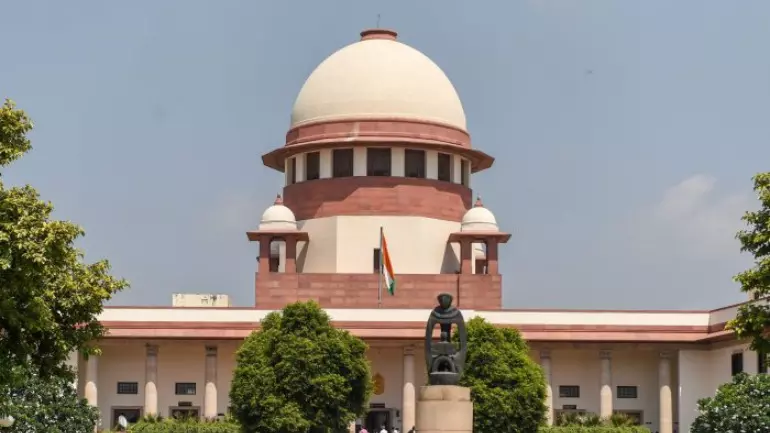SC censures ‘affluent persons’ moving it directly

New Delhi: The Supreme Court on Monday questioned the growing practice of influential individuals approaching it directly for relief in criminal cases, while declining to entertain petitions from former Chhattisgarh chief minister Bhupesh Baghel and his son, Chaitanya Baghel, in matters being investigated by central agencies.
The bench of Justices Surya Kant and Joymalya Bagchi advised the father and son to seek remedy before the high court in connection with cases linked to the alleged Chhattisgarh liquor scam and other ongoing probes.
“Why should the Supreme Court examine these petitions? High courts are also constitutional courts and can decide such issues. Otherwise, what is the point of having them?” the bench remarked. It noted what it called a “new trend” where well-connected litigants bypass other judicial forums, potentially pushing aside cases involving ordinary citizens.
The petitions challenged possible coercive actions by investigative bodies and certain provisions of the Prevention of Money Laundering Act (PMLA). Senior advocates Kapil Sibal and Abhishek Manu Singhvi appeared for the former chief minister and his son, respectively.
Sibal told the court that arrest actions by agencies such as the Enforcement Directorate (ED) were becoming common nationwide, with chargesheets being filed in fragments. “People not named in the FIR or the first chargesheet suddenly find themselves mentioned in a supplementary chargesheet and are then arrested,” he said.
Singhvi submitted that Chaitanya Baghel’s residence was searched in March and he was later taken into custody, despite his name not featuring in multiple earlier chargesheets.
Sibal also contended that the ED’s conduct was inconsistent with the Supreme Court’s 2022 ruling which had upheld its arrest powers but laid down procedural safeguards. The petition sought to challenge Sections 50 and 63 of the PMLA, which empower authorities to summon individuals, demand documents, record statements, and penalise false declarations.
The bench asked whether alleged procedural violations by the ED had been formally brought to a court’s notice. It recalled previous rulings stating that additional investigation after a chargesheet required court approval. “There are cases where a law itself may be valid, but the actions taken under it may be invalid,” the bench observed.
On the constitutional challenge to the PMLA provisions, the judges said the petitioners could file separate writ petitions, which would be heard alongside similar pending matters. The court permitted both to approach the high court for relief, directing that their cases be heard expeditiously.
Additional Solicitor General S V Raju, appearing for the probe agencies, argued that Bhupesh Baghel was not named in the FIRs or chargesheets and was therefore “a stranger to the litigation”. When Justice Bagchi asked whether the state could assure that Baghel would not face future arrest, Raju declined to make such a commitment, citing the ongoing nature of investigations.
Justice Bagchi responded, “We cannot leave a citizen’s liberty in uncertainty. He has the right to challenge the provisions.”
The ED and the Central Bureau of Investigation are probing multiple cases, including the alleged liquor scam, coal scam, Mahadev betting app case, rice mills case, and DMF scam, said to have taken place during Baghel’s tenure as chief minister. In July, Chaitanya Baghel was arrested in a money laundering case connected to the liquor scam.



